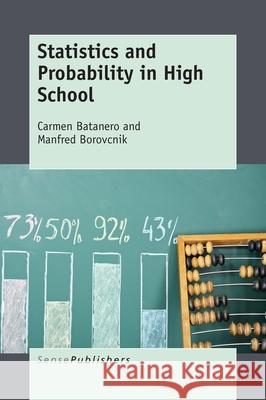Statistics and Probability in High School » książka
Statistics and Probability in High School
ISBN-13: 9789463006224 / Angielski / Miękka / 2016 / 234 str.
Statistics and Probability in High School
ISBN-13: 9789463006224 / Angielski / Miękka / 2016 / 234 str.
(netto: 178,07 VAT: 5%)
Najniższa cena z 30 dni: 180,57
ok. 22 dni roboczych.
Darmowa dostawa!
Statistics and probability are fascinating fields, tightly interwoven with the context of the problems which have to be modelled. The authors demonstrate how investigations and experiments provide promising teaching strategies to help high-school students acquire statistical and probabilistic literacy.In the first chapter the authors put into practice the following educational principles, reflecting their views of how these subjects should be taught: a focus on the most relevant ideas and postpone extensions to later stages; illustrating the complementary/dual nature of statistical and probabilistic reasoning; utilising the potential of technology and show its limits; and reflecting on the different levels of formalisation to meet the wide variety of students previous knowledge, abilities, and learning types.The remaining chapters deal with exploratory data analysis, modelling information by probabilities, exploring and modelling association, and with sampling and inference. Throughout the book, a modelling view of the concepts guides the presentation.In each chapter, the development of a cluster of fundamental ideas is centred around a statistical study or a real-world problem that leads to statistical questions requiring data in order to be answered. The concepts developed are designed to lead to meaningful solutions rather than remain abstract entities. For each cluster of ideas, the authors review the relevant research on misconceptions and synthesise the results of research in order to support teaching of statistics and probability in high school.What makes this book unique is its rich source of worked-through tasks and its focus on the interrelations between teaching and empirical research on understanding statistics and probability.











